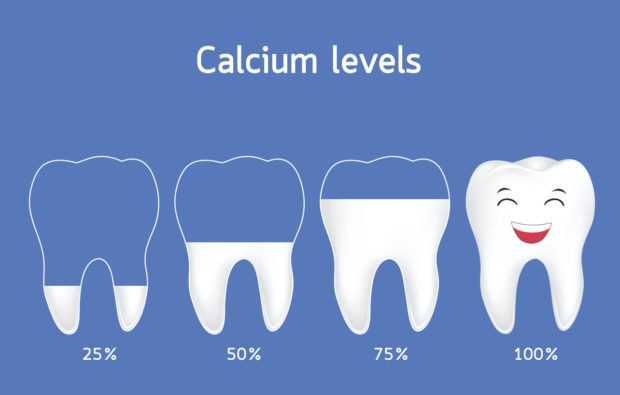The Best Vitamins And Minerals For Your Teeth
In human anatomy,
the mouth is the first portion of the alimentary canal that
receives food and produces saliva. Additionally, just like every other part of
your body it requires certain supplements and minerals to stay healthy.
Here’s a list of
vitamins and minerals you need to be eating for a heathier smile and better
oral health:
Vitamin
A
In spite of the fact that it's regularly just
connected with carrots and great vision, vitamin A is fundamental for keeping
your mouth's salivation supply flowing. It keeps up solid mucous films which
coat your gums and cheeks, making them less helpless to sickness.
It additionally advances salivation production,
which is essential for removing harmful bacteria and food particles from between
teeth and gums. Beside carrots, vitamin A is abundant in other foods for
example, peppers, sweet potatoes, spinach, egg yolks and fish.
B
Vitamins
B vitamins, particularly niacin and riboflavin, help
get rid of mouth sores and oral inflammation. If you end up getting infection
in the gums or tongue, increase these vitamins into your eating routine consulting your dental specialist, of course. You can discover niacin and riboflavin in
poultry, red meats, dairy items, spinach, almonds, and vegetables.

Vitamin
C
Vitamin C is basic in keeping the connective tissues
of your gums strong. Without enough of it, the tissues holding teeth safely set
up weaken, teeth can turn out to be loose, gums can bleed and gum diseases may
be a potential risk.
So make sure
to eat nourishments, for example, sweet potatoes, peppers, broccoli, berries,
oranges, kale, and berries which are high in vitamin C.
Calcium
Calcium is
one of the most important and
abundant minerals in the body. Besides providing the skeletal structure for
bones and teeth, calcium plays a key role in many
other day-to-day functions of the body. ... Whenever the blood and bodily
functions need more calcium,
it is pulled from your bones, where it is stored.
To ensure that your mouth's supporting bones are as tough as could be,
incorporate into your eating routine nourishment with sufficient calcium, for
example broccoli, sardines, almonds, vegetables, shellfish, and obviously dairy
items (as long as they have very little sugar). If all else fails, consider
getting some calcium supplements or seeing a specialist.

Phosphorus
Studies have demonstrated that for calcium to
completely ingest into the body and prmote bone growth, it should be paired
with phosphorus. Most dairy items contain both phosphorus and calcium together,
however numerous calcium supplements don't have phosphorus in them.
This implies keeping in mind the end goal to receive
the rewards of taking calcium supplements, phosphorus will need to be consumed
through eating regimen. Nourishments high in phosphorus incorporate cheddar,
yogurt, red meat, beans, lentils, nuts, and whole grains.
Vitamin
D
Vitamin D is essential for your oral health as it is
the thing that enables us to absorb calcium. Without it, your whole mouth would
experience the ill effects of calcium insufficiency, causing undeveloped teeth,
gum disease, and tooth decay.
You can procure all the vitamin D that your body
needs just by sitting in sun for 15 minutes every day. You can likewise eat a
diet consisting of eggs, angle, and cod liver oil.

Vitamin
E
Vitamin E has been connected to the prevention of
periodontal infections and fights with it in two ways: one of them is through
diminishing inflammation in the mouth, chronic or otherwise, and the other is by
being an anti-oxidant. Vitamin E's anti-oxidant properties battle against the
oxidation of gum tissue, which can cause a large number of issues.
Try to incorporate more nourishments high in vitamin
E in your eating routine; nuts and seeds, cooking with vegetable oils, leafy
green vegetables, fish, and avocado.
Potassium
Potassium, otherwise called vitamin K, assumes a
part in bone health as it obstructs certain substances in the body that cause
the breakdown of bones. Potassium is a mineral that's crucial for life. Potassium is
necessary for the heart, kidneys, and other organs to work normally. Food’s
that are high in potassium are vegetables, leafy green vegetables, squash,
yogurt, drain, cheddar, mushrooms, bananas, and avocados.
Fluoride
Fluoride is generally utilized by dental
practitioners and in many toothpastes as a treatment to battle against tooth
and gum decay. It advances the remineralization of tooth enamel, the defensive
external covering of teeth that should be reinforced routinely. It is vital for
general oral health. To incorporate more fluoride in your eating regimen, drink
tap water, black tea, and eat more fish.

Iodine
Iodine is a trace mineral in the body, implying that
very little is needed for it to be effective. Iodine helps in the improvement
of teeth and bones as it boosts the absorption of calcium in the body which, as
said previously, to a great extent makes up teeth and bones. To guarantee that
you are getting proper amount of iodine, incorporate shellfish, sea food,
garlic, sesame seeds, squash, and sensible dosages of iodized salt in your
eating regimen.
Zinc
Zinc is another trace mineral, and can normally be
found in spit. It has been demonstrated to battle against the development of
bacteria and plaque, which can rot teeth and gum tissues, causing depressions
and gum disease. You can guarantee that your mouth is getting all the zinc it
needs with foods like cashews, red meat, pumpkin seeds, squash, clams,
mushrooms, dull chocolate, and vegetables.
Keep in mind that while eating an adjusted eating
regimen is imperative in keeping up your oral wellbeing, general dental
checkups are important in guaranteeing that your mouth is as healthy as it can
be.

Comments
Post a Comment